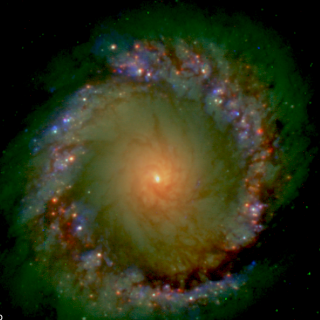Bibcode
Remus, R.-S.; Prieto, M. A.; Hirschmann, M.; Dolag, K.; Steinborn, L. K.
Referencia bibliográfica
Monthly Notices of the Royal Astronomical Society, Volume 448, Issue 2, p.1504-1525
Fecha de publicación:
4
2015
Número de citas
185
Número de citas referidas
167
Descripción
In large-scale cosmological hydrodynamic simulations simplified sub-grid
models for gas accretion on to black holes and AGN feedback are commonly
used. Such models typically depend on various free parameters, which are
not well constrained. We present a new advanced model containing a more
detailed description of AGN feedback, where those parameters reflect the
results of recent observations. The model takes the dependence of these
parameters on the black hole properties into account and describes a
continuous transition between the feedback processes acting in the
so-called radio-mode and quasar-mode. In addition, we implement a more
detailed description of the accretion of gas on to black holes by
distinguishing between hot and cold gas accretion. Our new
implementations prevent black holes from gaining too much mass,
particularly at low redshifts, so that our simulations are successful in
reproducing the observed present-day black hole mass function. Our new
model also suppresses star formation in massive galaxies slightly more
efficiently than many state-of-the-art models. Therefore, the
simulations that include our new implementations produce a more
realistic population of quiescent and star-forming galaxies compared to
recent observations, even if some discrepancies remain. In addition, the
baryon conversion efficiencies in our simulation are - except for the
high-mass end - consistent with observations presented in the literature
over the mass range resolved by our simulations. Finally, we discuss the
significant impact of the feedback model on the low-luminous end of the
AGN luminosity function.
Proyectos relacionados

Centros de Galaxias a Escalas de Parsecs y Técnicas de Alta Resolución Espacial
Proyecto enfocado al estudio en el IR del núcleo de las galaxias más cercanas con resoluciones espaciales en el rango de 1 a 10 pc. Estas resoluciones espaciales, accesibles con los grandes telescopios de tierra usando técnicas frontera de observación, son por primera vez comparables a las que se obtienen rutinariamente con HST en el óptico y VLBI
Almudena
Prieto Escudero